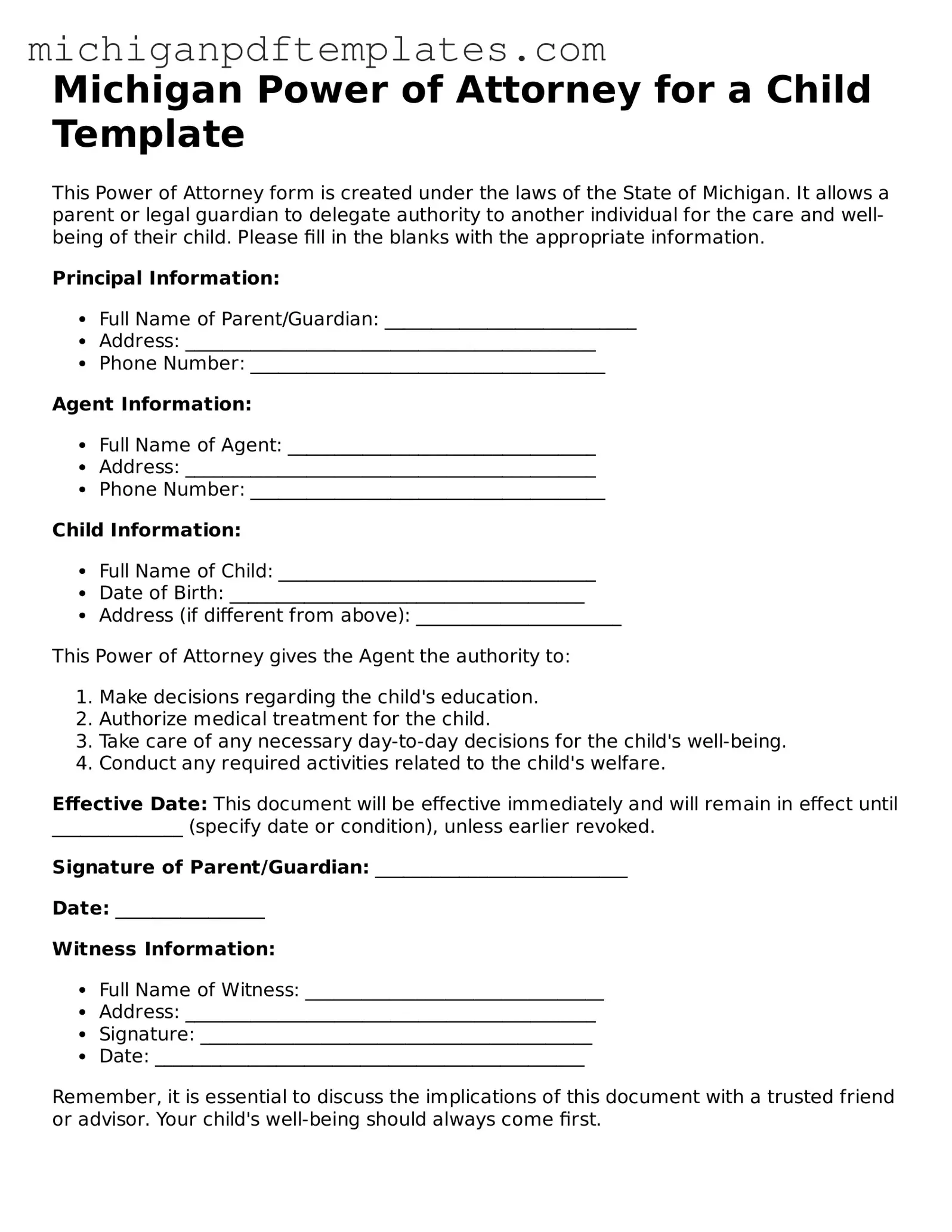Legal Michigan Power of Attorney for a Child Template
The Michigan Power of Attorney for a Child form is a legal document that allows a parent or guardian to designate another individual to make decisions on behalf of their child. This form is particularly useful in situations where the parent may be unavailable, such as during travel or medical emergencies. Understanding how to properly fill out this form can ensure that your child’s needs are met when you cannot be there.
Ready to take the next step? Fill out the form by clicking the button below!
Get Your Form Now

Legal Michigan Power of Attorney for a Child Template
Get Your Form Now

Get Your Form Now
or
▼ PDF Form
Finish this form quickly and move on
Fill in and complete Power of Attorney for a Child online quickly.